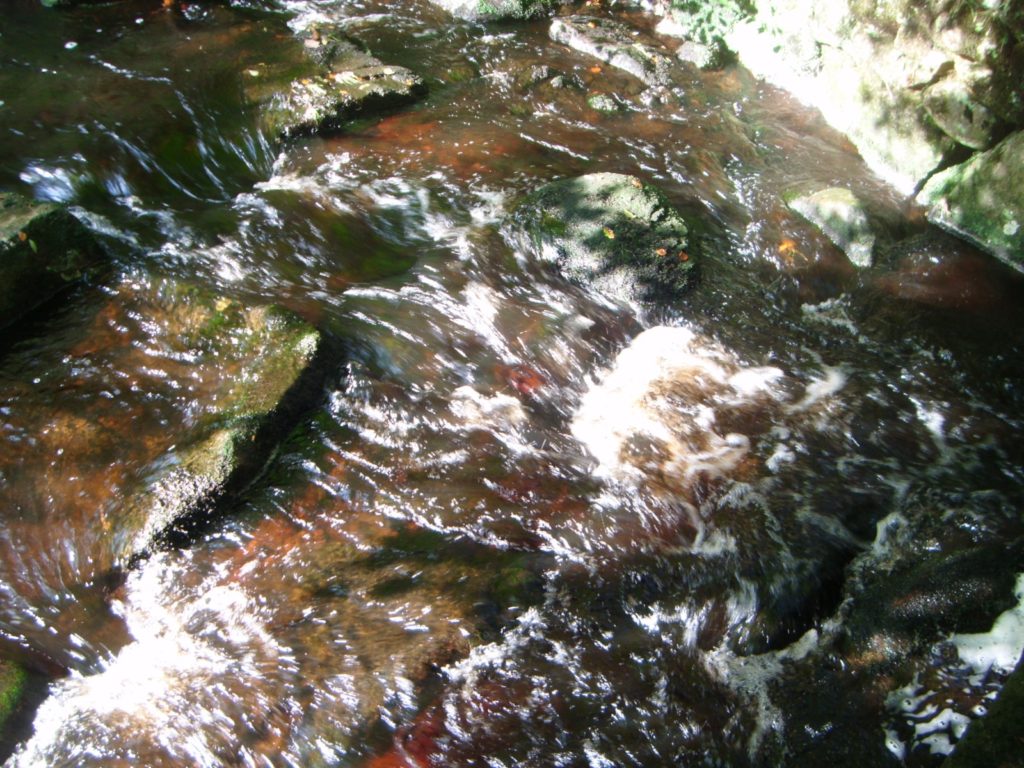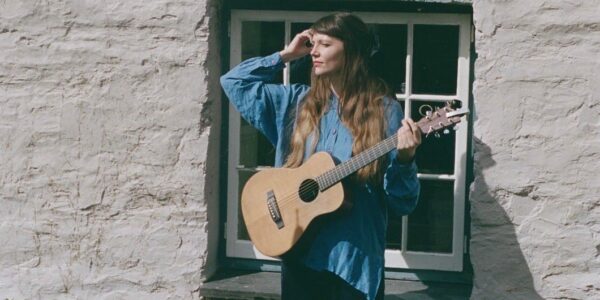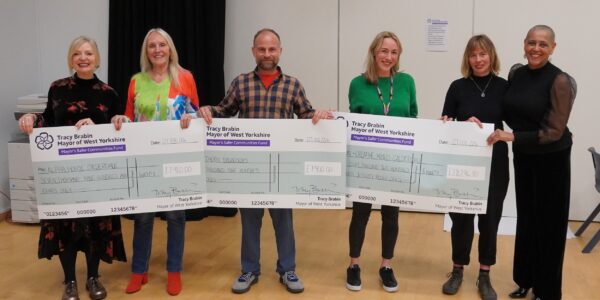“There’s a certain slant of light” or Henry’s Arvon Adventure
03 Dec 2013 / My Arvon Week

By H. A Myers, a writer on the Lumb Bank, Fiction course 11-16 November 2013 with tutors Kate Long and Simon Thirsk
“I feel like a child again,” thought Henry, as he pushed on through the woods above the river, “a child who has lost his way.”
He had thought that getting away to Yorkshire on a writers’ course and leaving behind the heavy demands of his business for a few days, would somehow bring him back to himself, reconnect him with his creative spark, open a door on a better future. Instead he felt paralysed, useless, out of his depth. The problem was that he was completely stuck with his novel and his tutors were giving him considered but troublesome advice.
The light was fast bleeding out of what remained of the autumn day and the rushing, tumultuous river, forcing its way down the Pennine hillside, seemed to fill his ears with questions he could not answer.
“You are all writers here” said the tutor on the first evening as they had sat around eyeing each other tentatively, unsure of themselves and each other.
“And this week is in itself a story,” he had continued. “Our job is to liberate the narrator in each one of you.”
Henry found the northern air bracing and realised his strenuous walking and self-questioning had made him a little breathless. He wished he were fitter. He pulled his unfastened coat more warmly around him, seated himself on a jutting rock and stared down at the river below.
“Well, if this week is a story,” he thought, “then we must be in Act Two – shaping up to the challenge. And as the hero of the story I am now struggling with self doubt. That’s why I feel like a child again, sitting in class getting my story back with red marks all over it. At work I am the boss. I set the tasks and call the shots but here I am a novice and it’s hard.”
Henry sat for a while with his chin in his hands looking gloomily into the near void of his own back story. He may not have been a fully rounded character but one thing was certain. He had fought and defeated bigger monsters than this in his life and he felt determined not to be outdone by this one. The story of the week was not going to end in tragedy. He got to his feet, stuffed his chilling hands into his pockets and set off again on the leaf-strewn path that now led steeply up the hillside. His quest to find his writer’s voice had begun. He had accepted the task.
The mid-November day had started bright enough with all the students grouped around the table, heads bowed over their notes, as the sunlight streamed through the large dining room window onto the centrepieces of autumnal foliage. But, as Henry trudged up the hill, he realised that the light was already beginning to fade and that, according to the plot, he not only needed to engage with the problem but that it was vital that he achieve some kind of breakthrough before he could start heading for home. He was a stranger here. The criss-crossing paths were unfamiliar to him and time was not on his side.
The problem, his tutors had insisted, was to identify his audience. Who was he supposed to be writing for? If he could not determine his readership then he would not be able to tailor his novel to the requirements of the market. However, if he had not yet discovered his voice (and he knew he hadn’t) how could he possibly work out for whom he was writing? Here then was the central conundrum of the plot.
He wished he had brought a sturdy pair of walking boots as the ground was rocky and uneven in places and, after the recent rain, quite boggy in others. And this particular valley seemed very remote. It was a far cry from his familiar stomping ground and so far he had not encountered any other characters at all. Still determined, he struggled round a fallen tree in his path and came up quite suddenly to the top of a ridge. He hesitated. He could go on or he could accept failure, retrace his steps and still get back in daylight. Staring at the twisted downward path ahead he resolved to press on.
Then, out of nowhere, the thought struck him. And the realisation made him stop in his tracks. He had to have something prepared to read out to his fellow students the following evening. Everyone would be reading from their work. It was mandatory. So they were his audience, his readers, the hungry market that he needed to please. That was it. All he needed now was an idea and he would be home and dry.
Henry took a long last look at the scene before him, the path descending to the waterfall, the canopy of beech trees where each copper coloured leaf hung silhouetted against the late afternoon sky. There was no breeze. All he needed was for one leaf to fall, one idea to detach itself from all those myriad potential stories just waiting to be told, just one leaf to float down and land at his feet. If he was lucky it would be the idea that chimed with the Zeitgeist, the one that everyone unknowingly was waiting for. It would be the one that he, Henry, would labour for months, years even, through many drafts, to bring fully formed as a book into the world. This would be the novel that set the public imagination alight, the one that escaped from its intended market and became a favourite of book clubs across the land. His chest swelled in anticipation of all the plaudits he would receive.
But, as any storyteller will tell you, pride always comes before a fall. And this was, indeed, the very moment that our hero lost his footing and went slithering down the wet, leafy bank on his backside.
“Fuck!” he yelled as his right buttock hit a small rock and he turned a nasty half somersault, coming to a halt with his left arm trapped painfully beneath him.
“Fuck, fuck, fuck” he uttered breathlessly, remembering, in spite of the pain, that all stories need a bit of dialogue (even if there is only one character), and that swear words are fine if used appropriately and in – moderation.
Henry sat up and rubbed his arm vigorously, feeling stupidly grateful that there had been no witnesses to his ungainly plummet. He wondered whether this accident hadn’t been bound to happen in order to signal the start of Act Four where the hero faces fresh setbacks, new personal doubts and growing problems. Here he was, on his arse in the mud, and still he had not got an idea for his masterpiece.
“Maybe I can be of some help?” came a sweet, dreamy voice from somewhere above him. Startled, Henry clambered to his feet and looked around him in the growing gloom, worrying about his use of clichés and wondering whether his prose was getting a bit “clunky” in all the excitement of pressing forward with the plot. But, in the same moment, his attention was arrested by the vision of feminine loveliness that had appeared before him. She was seated on a low bough of the fallen tree, her bare feet dangling beneath her. Her skimpy, diaphanous robe seemed to shimmer like so many silver fireflies in the darkening wood.
The questioning roar of the river was once again drumming in Henry’s ears. What had happened to his story? Was it turning into a fantasy? Or could romance be on the cards? “At any event,” he thought, rubbing the mud off his palms down the sides of his coat, “let’s hope I don’t have to rise to a sex scene. That would be one challenge too far.” Nevertheless, she was enchantingly beautiful and he approached her spellbound. It was then that he noticed that she was turning something over in her fingers, something which, as he drew nearer, she held out toward him in the palm of her slender hand. It was a golden leaf.
“I am your Muse,” she said, “come to rescue you from your seemingly insoluble setbacks. This, I think, is the idea that you have been looking for” and she proffered him the leaf. As he reached to accept it, Henry’s eyes met hers and it was as if he were looking deep into an unfathomable well, a well which held all the stories that have ever been told or ever will be told. They were floating around like stars in the universe, all fundamentally alike and yet all essentially unique and true only to themselves.
Henry felt wonderful, transformed and whole. His doubts flew away, his injuries were healed and his heart was full to bursting with the excitement of developing his brilliant idea into a completely new story.
“Thank you” he said. But she was gone.
All he had to do now was to feel his way safely back through the dark to the beginning.
With sincere thanks to our hard-working, long-suffering tutors, Kate Long and Simon “Clunky” Thirsk, and to all the support staff, for an immensely enjoyable, edifying and unforgettable week.



